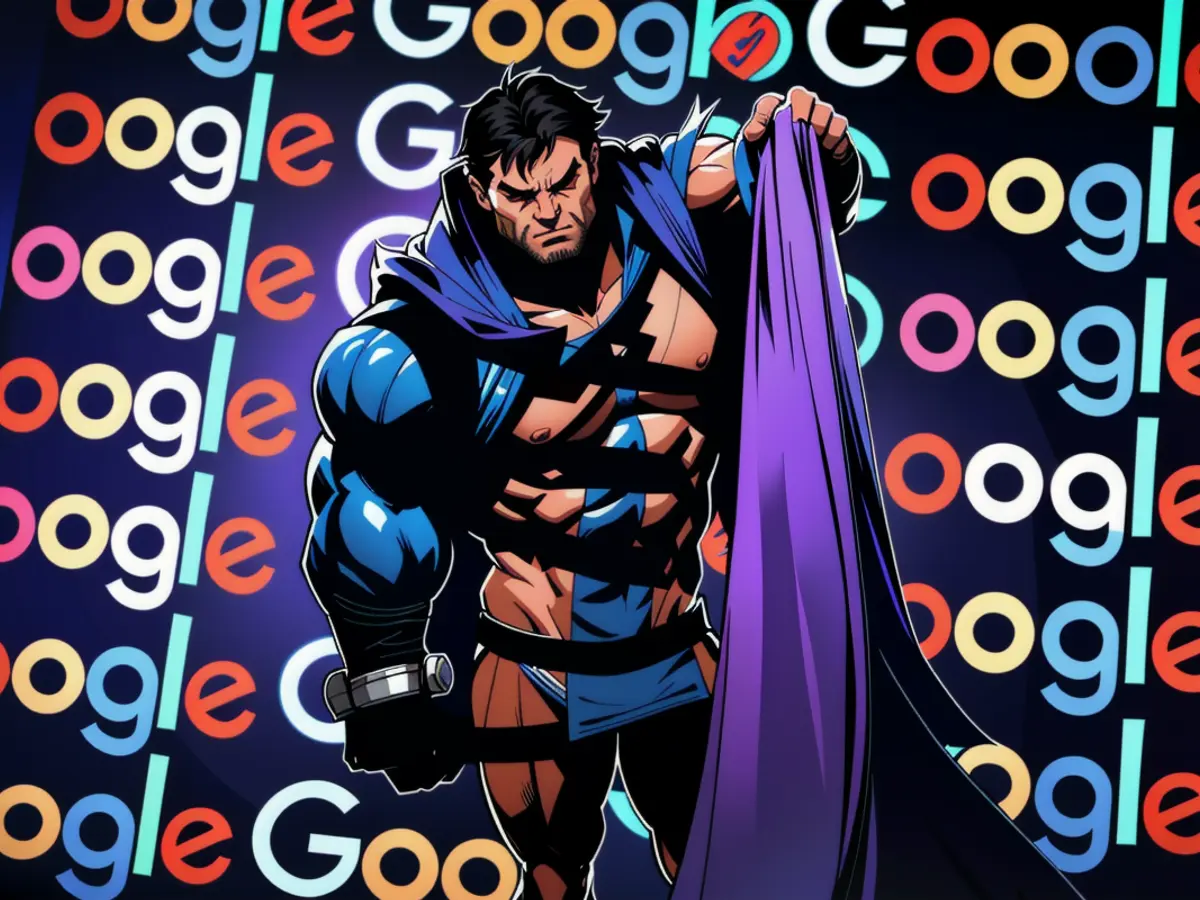Diversity, Equity, and Inclusion (DEI) isn't truly extinct.
Activists are exaggerating the considerable changes some corporations are implementing to combat heat, as evidenced by a CNN analysis of company policies and discussions with consultants and DEI advocates. Despite the harsh criticism leveled against DEI by those who see it as "discrimination in reverse," its presence in corporate America remains robust.
The vast majority of notable American companies continue to assert their dedication to promoting DEI. Few companies have abandoned their DEI initiatives altogether, and only a small number have implemented any significant changes. Last month, the Heritage Foundation, a conservative think tank critical of DEI, discovered that 486 of the Fortune 500 firms still feature a DEI declaration or commitment on their websites.
There's no universally accepted definition of DEI, but it generally encompasses employee training, employee resource networks, and hiring practices designed to promote the representation of individuals of various races, genders, socioeconomic backgrounds, disabled people, veterans, and other underrepresented groups.
Simply having a DEI statement on a company's website does not imply that they are actively implementing anything. It remains unclear how effective these programs have been or to what extent they have been successful. However, businesses are still working to recruit and promote a more diverse candidate pool than they did just a few years ago, according to experts. Furthermore, they believe that extending their recruiting efforts, talent retention, and client acquisition strategies to underrepresented groups is beneficial for their financial performance.
“DEI is not disappearing; it’s merely evolving,” said J. Danielle Carr, the chief officer of inclusion at Lowenstein Sandler and president of the Association of Law Firm Diversity Professionals. This year, only 14 of the Fortune 500 corporations made any public changes to their DEI teams or programs.
“The adjustments these companies have integrated were not dramatic alterations to the work, and the dedication to focusing on the core elements of DEI remained steady,” Carr stated.
Business Impact of DEI
Instead of abolishing DEI policies, corporations are modifying their language and vocabulary.
Some companies are switching from "DEI" to "inclusion" or "belonging." The Justice Department under President-elect Donald Trump is planning to challenge DEI policies at public schools, government agencies, and other public institutions; however, its ability to impact private businesses may be limited.
Companies are also promoting their efforts less prominently than they had been in 2020 and 2021.
The most significant change most companies appear to be making is discontinuing participation in the Corporate Equality Index, an annual survey that ranks companies based on their LGBTQ policies by the Human Rights Campaign, an LGBTQ advocacy group.
However, this does not necessarily imply the end of these programs. And it's likely that the financial success of DEI initiatives, including improved profits, reduced employee turnover, and increased employee motivation, will continue to keep these programs alive.
DEI initiatives, according to Boston Consulting Group research based on data from more than 27,000 employees in 16 countries, have been shown to boost profits and reduce employee turnover. McKinsey found that corporations with more diverse board director representation are more likely to exceed financial targets.
“Most companies continue with their DEI programs; they’re just going to be less vocal about it. They don’t want to attract someone like Robby Starbuck,” said Kai Liekefett, co-chair of the shareholder activism and corporate defense practice at Sidley Austin, referring to one of the leaders of the anti-DEI campaigns.
“I’m not sure the substance will change all that much,” he said. “There is a widely held belief that DEI programs are valuable.”
Reacting to Pressure
Starbuck is leveraging a wave of right-wing hostility towards DEI programs and corporate advocacy on issues such as climate change and LGBTQ rights.
By focusing on specific brands popular with conservative customers — such as Harley-Davidson, Tractor Supply Co., and John Deere — Starbuck has garnered attention and support online.
“Any movement to transformative change begins with momentum, and we clearly have the momentum,” Starbuck said. “I’d describe this current period as the beginning of the end for DEI and wokeness.”
He has achieved some notable victories: Tractor Supply eliminated DEI and carbon emissions roles, and Molson Coors ended its supplier diversity goals.
However, most of the companies that have recently modified their DEI policies in response to Starbuck’s pressure are implementing shallow changes.
Take Ford, John Deere, or Walmart.

In August, Ford terminated participation in all external culture surveys, not just those by the Human Rights Campaign. Ford reiterated that it does not use hiring quotas — a common criticism of DEI policies as racial quotas — and stated that each of its employee resource groups was open to all employees.
Starbuck took credit, stating, “I’m currently looking into woke policies @Ford, but this morning, Ford confirmed to me that they’re making changes.”
CEO Jim Farley, however, said in a statement at the time that Ford had spent the previous year reviewing its policies. Ford remains committed to creating an inclusive workplace and building a team that leverages diverse perspectives, backgrounds, and thinking styles, he said.
Ford informed CNN that its policies promoting diversity and inclusion at the company remained in effect. Ford also continues to have a chief DEI officer.
The changes at John Deere were not as extensive as Starbuck claimed or as some outlets initially reported.
“Deere slashes diversity initiatives after backlash from conservative activist,” the Wall Street Journal reported. “John Deere backs away from diversity and inclusion efforts,” CNN stated.
Deere declared it would no longer participate in or support festivals and cultural events, inspecting training materials and policies to ensure they don't contain socially driven messages. Deere assured commitment to promoting diversity within the company, promising to keep tabs on this aspect as well.
In a July statement, Deere expressed confidence in the power of a diverse workforce to cater to customers' needs most effectively.
Deere remained unresponsive to CNN's request for comment.
"Amplify the adjustments"
Starbucks singled out Walmart as its primary objective specifically last month.
Walmart announced it would discontinue racial equality training programs for employees and reassess initiatives aiming to boost the number of diverse suppliers, including female, minority, veteran, and LGBTQ+ businesses, over recent years.
In addition, Walmart is scrutinizing funding for Pride parades and similar events and monitoring its online marketplace, removing any inappropriate sexual or transgender products targeted at children.
Furthermore, Walmart revealed it would forgo the Center for Racial Equity – a five-year, $100 million pledge to address the underlying causes of inequality in education, health, criminal justice, and other domains for Black Americans, a commitment they made in 2020.
"We're open to evolving alongside our associates and customers, reflecting the diverse spectrum of America," Walmart stated at the time.
Starbucks labeled this development as "the greatest victory" in their mission to eradicate 'wokeness' in corporate America on X.
However, according to Ying McGuire, CEO of the National Minority Supplier Development Council, Walmart and other companies are still prioritizing enhancing opportunities for underrepresented suppliers, including those owned by women, veterans, and individuals with disabilities.
"It's politics and semantics. The activists exaggerate the changes," McGuire said.
McGuire is not concerned about the impact on minority suppliers, believing that strategic diversification in suppliers and selecting the most competitive ones is good business practice.
"Walmart has a long-established history of encouraging supplier diversity. They have been a frontrunner in this field. They have achieved considerable advancements in engaging businesses owned by minorities," she highlighted. "Walmart is merely adjusting its messaging and striving to reduce risks."
Businesses continue to prioritize promoting diversity, equity, and inclusion (DEI) within their organizations, despite some critics viewing it as "discrimination in reverse." Many companies have not abandoned their DEI initiatives altogether, and many still tout their commitments to DEI on their websites.
However, corporations are modifying their language and approach to DEI, with some opting to use terms like "inclusion" or "belonging" instead. Despite this shift, experts believe that corporations still find value in implementing DEI initiatives, as evidence suggests that these programs can boost profits and reduce employee turnover.









